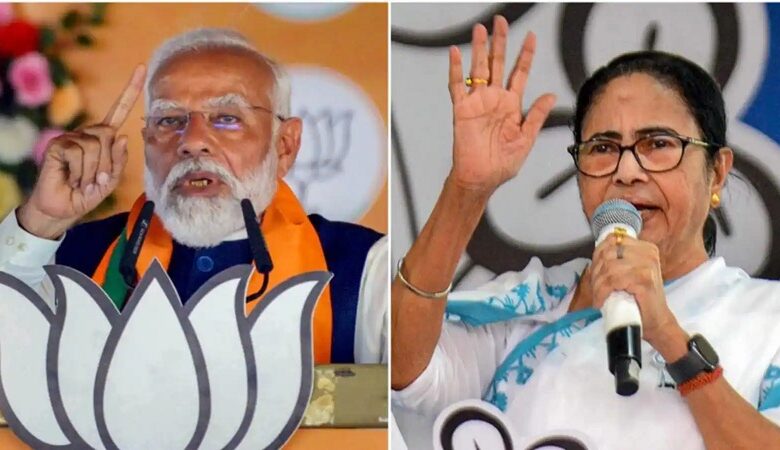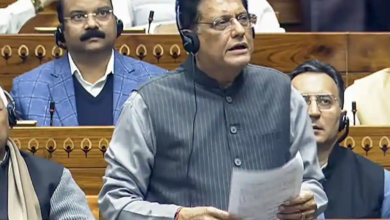PM Modi accesses TMC of sabotaging Ramnavami celebrations

Amidst preparations for the Ram Navami celebrations, political tensions flared in West Bengal, setting the stage for a clash between the ruling Trinamool Congress and the Bharatiya Janata Party (BJP). Prime Minister Narendra Modi accused the Trinamool Congress of attempting to obstruct the festivities, while Chief Minister Mamata Banerjee retaliated by alleging BJP’s interference in official transfers and warning of potential riots.
The controversy erupted following the Calcutta High Court’s decision to grant permission to the Vishwa Hindu Parishad (VHP) to conduct a procession on Ram Navami in Howrah city. The West Bengal government had expressed concerns over potential unrest, citing disturbances during last year’s procession, and had proposed an alternative route, which was contested by the organisers in the high court.
Speaking at a public meeting in Balurghat, PM Modi seized the opportunity to address the issue, noting the significance of this year’s Ram Navami celebrations with the recent inauguration of the grand temple in Ayodhya, where Ram Lalla has been enthroned. He accused the Trinamool Congress of attempting to thwart the celebrations through various means but expressed satisfaction over the court’s decision to grant permission for the processions.
Meanwhile, as the state gears up for the first phase of elections scheduled for April 19, Mamata Banerjee raised concerns about the BJP’s alleged agenda to fuel communal tensions. She pointed to recent changes in the appointment of officials, including the replacement of the Deputy Inspector General of Murshidabad, insinuating BJP’s influence behind the decision.
Banerjee warned that if riots were to occur, the responsibility would fall on the Election Commission, accusing it of selectively appointing officers favoring the BJP’s interests. She emphasized that the Election Commission currently holds authority over the state’s law and order and cautioned against any incidents during the electoral process.
The exchange between the two political leaders underscores the escalating tensions in West Bengal, fueled by the convergence of religious festivities and electoral politics. As the state braces for a heated electoral battle, the Ram Navami celebrations have become a focal point of contention, reflecting broader ideological and communal divisions within the region.
The BJP’s emphasis on Ram Navami celebrations aligns with its larger narrative of Hindutva politics, seeking to mobilize Hindu sentiments ahead of the elections. Conversely, the Trinamool Congress, while not opposing the celebrations outright, appears cautious about potential disruptions and seeks to maintain stability in the state.
The accusations and counter-accusations between the two parties indicate the polarized political landscape in West Bengal, where religious identities often intersect with electoral dynamics. As the election campaign intensifies, the Ram Navami celebrations serve as a microcosm of the larger political contestation, with both sides vying for control and influence over the narrative. In this charged atmosphere, the role of the Election Commission and other regulatory bodies becomes crucial in ensuring a peaceful electoral process devoid of communal tensions and disruptions.






